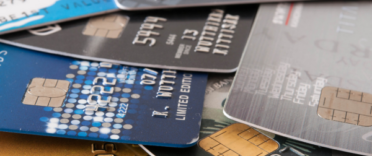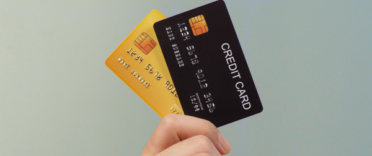 A credit card cash advance is a type of loan that involves using your credit card to access cash, rather than using it to make a purchase directly with a retailer. The most obvious example of a credit card cash advance is using your card to withdraw money from an ATM. Using a credit card this way is very different to using it for everyday spending and the extra costs can be astronomical. In this article we will explain how a cash advance works, why it is important to avoid it and what alternative options you should consider.
A credit card cash advance is a type of loan that involves using your credit card to access cash, rather than using it to make a purchase directly with a retailer. The most obvious example of a credit card cash advance is using your card to withdraw money from an ATM. Using a credit card this way is very different to using it for everyday spending and the extra costs can be astronomical. In this article we will explain how a cash advance works, why it is important to avoid it and what alternative options you should consider.
What is a cash advance?
Credit card providers will usually allow you to use your card to withdraw cash from an ATM, known as a cash advance. Just like with purchases on your credit card, this money will need to be repaid. There are other transactions that your provider may consider a cash advance, such as transferring money via PayPal.
This may seem like a quick and easy way to get hold of cash, especially if you have an urgent expense that you cannot pay for with a credit card, however, the key disadvantage of a cash advance is the cost. You are usually charged interest from the moment you get the money, rather than after the interest-free period which is how interest on credit card purchases is usually charged. Most cards have a 56 day ‘grace’ period for purchases, or much longer if you have one of the best 0% purchase credit cards. The rate of interest you are charged for a cash advance is also likely to be higher than the amount charged for a credit card purchase. There may also be a fee to pay on top of the interest charges. Keep in mind that even if your card has a 0% period, this will likely not apply to a cash advance.
This is all because a cash advance involves getting instant money from your credit card provider, but a purchase does not. Credit card providers will not always immediately pay a retailer when you buy something with your card, but it will have to pay you immediately if you take out cash. This important difference is the reason why there are such hefty extra costs for a credit card cash advance.
How much is a cash advance?
This depends on your credit card provider and on how much cash you take out, but it is likely to be expensive. This is because some providers charge interest as soon as you take the money out, plus a cash advance fee. The interest will likely be higher than what you would expect to pay for an equivalent cost purchase, while the fee will usually be around 3% of the cash advance.
Most credit card providers will give you at least 56 days – much longer if you have a 0% purchase period on your card – to clear the balance you build up through direct purchases with retailers. Some credit card providers will start charging interest from the day you withdraw the money, meaning the interest quickly starts to mount up. So, even if you only end up taking out £10 or £20 in cash on your credit card, it is likely to end up costing you a lot more. The best way to limit the cost of a cash advance is pay off your balance as soon as possible, or avoid one altogether.
What transactions are considered a cash advance?
The most common example of a cash advance is withdrawing cash from an ATM with your credit card, but there are other transactions that may count too. Exactly what constitutes a cash advance will be decided by your credit card provider, so check first if you are unsure and want to avoid the extra fees and charges.
| What your credit card provider may consider to be a cash advance |
| Housing costs (such as rent or mortgage payments) |
| Gambling (including lottery tickets and buying chips in a casino) |
| Purchasing foreign currency |
| Buying gift vouchers |
| Transferring money to your current account (including via online services such as PayPal) |
| Buying cryptocurrency |
| Share dealing |
How do credit card cash advances work?
The most basic form of cash advance involves withdrawing cash from an ATM using your credit card. You insert it as you would your debit card, enter your pin and select how much cash you need. Depending on your credit card provider, you may be charged interest from the day of your withdrawal and any fees will likely be added to your balance.
A cash advance will work differently if you are outside of the UK and could prove to be much cheaper or much more expensive, depending on the credit card you are using.
How much can you get from a cash advance?
How much you can spend on your credit card is constrained by your credit limit, but you will likely have a different, lower cash advance limit. This, like your credit limit, will be based on how much the provider thinks you can afford to repay. Usually, applicants with a better credit score will be offered higher a credit limit.
Your provider will also likely put a limit on cash advance frequency. This means you may only be able to take cash out from an ATM a few times each month.
Should I use a credit card for a cash advance?
A cash advance should not be your first choice if you are in need of cash. It is one of the most expensive ways to withdraw money and should only be used in emergency situations. For example, if you are in a dire financial situation, it will probably be cheaper to opt for a cash advance than a payday loan. However, almost every other form of borrowing will turn out to be cheaper. Anyone who does make use of a cash advance should make sure they pay it off as soon as possible.
Will a cash advance hurt my credit score?
Another important consideration before you opt for a cash advance is how the transaction will look on your credit file. A cash advance will show up in your credit history for any future lenders to see. This is likely to have negative consequences as most lenders will interpret a cash advance as evidence that you may have struggled with managing your money in the past. They may view this as a sign that you would do so again in the future, which could leave you at risk of building up further debt or being unable to make your repayments. This will ultimately make it harder to get a top credit card or loan.
Can I withdraw cash abroad on my credit card?
Taking cash out abroad using your credit card is different to doing so at home. Some card providers will charge you even more for withdrawing cash at an ATM if you are outside the UK, while others will not make you pay an extra at all. Providers that do charge you will likely add a foreign transaction fee to the cash advance fee and interest charges, plus a conversion fee if you try to withdraw GBP abroad. You are also unlikely to get the best exchange rate.
On the other hand, specialist travel credit cards can be a cheap and easy way to manage your holiday spending and make foreign transactions, including withdrawing cash. The same card that may charge you a fortune for taking out £20 from an ATM at Bromley Tesco may charge you nothing to withdraw €20 at a Bordeaux Carrefour. We have put together a list of the very best credit cards to use while you are abroad, which you can find on our article ‘Compare the best travel credit cards‘.
Alternatives to a cash advance
A cash advance is one of the most expensive ways to access cash and so should be avoided if possible, especially as there are multiple alternatives that are much cheaper. Here are five key options to consider before you turn to a cash advance.
1) Money transfer credit card
This is an alternative option that is similar to a credit card cash advance but without the huge extra costs. If you need access to cash, instead of using a credit card at a cash machine, you can transfer money from your credit card to your current account, which you can then withdraw as cash for free. The only cost will be a money transfer fee, which is usually 3-4% of the amount you move over.
You can also benefit from 0% interest periods on the best money transfer credit cards. This means you can transfer money to your current account, then pay your balance off steadily over the course of the interest-free period.
2) Current account overdraft
Taking out cash from your current account is usually free, though sometimes you will be charged by the ATM provider. It is an obvious alternative to a cash advance, though it will only involve borrowing money if you take out more in cash than you have in the account and enter your overdraft.
Overdrafts can charge very high interest rates in some cases, but are likely to be marginally cheaper than a cash advance. You will need to arrange an overdraft with your bank before you take the cash out and – like with a cash advance – you should try to pay back the amount you owe as soon as possible if it is growing with interest.
3) 0% purchase credit card
Using your credit card to make a purchase with a retailer is much cheaper than a cash advance, especially if you have a 0% purchase period on the card. You can spread the cost and benefit from section 75 purchase protection. Unfortunately, not every purchase can be made with a credit card so you may require cash from a different source.
4) Personal loan
Personal loans can be paid directly into your current account, which you can then use for almost any purchase or take it out in cash. It is usually a good option for someone looking to borrow a significant amount of money over a longer period of time. We cover the key difference between credit cards and loans in our article ‘Is it better to get a credit card or a personal loan?’.
Some short-term personal loans or payday loans charge very high interest rates and should be avoided.
5) Help with paying your bills
If you are thinking about a cash advance to pay essential bills, meet urgent living costs or pay off other debt, you should consider free debt advice first. Independent experts at organisations such as StepChange or Citizens Advice can help you plan out how to better manage your finances and help you negotiate a new pay structure with whoever you owe money to. They can also point you towards any benefits or government help that can make paying bills easier.
If a link has an * beside it this means that it is an affiliated link. If you go via the link Money to the Masses may receive a small fee which helps keep Money to the Masses free to use. But as you can clearly see this has in no way influenced this independent and balanced review of the product.






